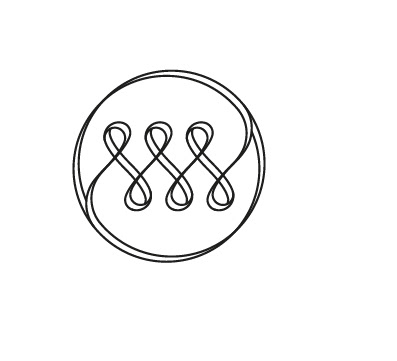Through time, homo sapiens have expressed and demonstrated their infinite and insatiable desire for knowledge. The mental processes of acquiring knowledge and comprehending it are fundamental to develop cognition. To fully extend cognition, methods like thinking, remembering, questioning, and problem-solving are connected to higher capacities of the brain. Later incorporating creativity, language, attention, and preparation. These basic processes are fundamental for every person at a very early stage in life; in this sense, children are born with an endless curiosity to discover. Unfortunately, many conservative educational systems disregard exploratory options to inspire their infinite learning desire.
Drawing on Suzuki's (2010) Zen theory of Shoshin, where a beginner's mind has endless possibilities, and an expert's very few. Designers are continuously at risk of being blinded by ego, ensuring expertise and authority in their practice. Hence, for some individuals, being an expert is a liability instead of an asset. Continuous learners open the spectrum of opportunities to meaningful interactions, fruitful collaborations, and, most importantly, learning how to learn.
Human knowledge is rooted in philosophy through epistemology. Its ontology goes back in time with Plato's theory of knowledge defined as ‘epistême’ or True Knowledge (Majeed, 2014). His approach led the rationalist's articulation of information that proposes reason and logic as the basis of truth. Other thinkers in the Sophist group, like Aristotle, advocated for demonstration as a means of understanding information (Ziguras, 2010). Descartes would later contradict this principle with his famous theory: “I think; therefore, I am.” Aristotle’s process of observation gave ground to ‘sensory experiences’ or empiricism (Newell, 2016). Learning how to learn is a combination of different methods and theories, its foremost flexible. It relates rationalism to empiricism mixed with phenomenology (experience and perception) and hermeneutics (interpretation) for materialization or being in the world (e.g., Heidegger, 1962; Willis, 2006). Subsequently, the humanistic process of sensemaking or gaining subjective knowledge was coined by Christian Madsbjerg (2017) as The Third Knowledge.
The materiality of knowledge through design is driven by an endless desire to create tangible solutions, rather than a critical thinking practice. Hence, designers often forget knowledge articulation is required at an early stage of any design process. When knowledge is articulated, thoughtful discussions flourish from reflecting on processes and experiences. They are followed by the dissemination of the information obtained and canalized by elaborating ways to share it, in other words, educate.
Consequently, the problem of method arises (Williams, 2001); this problem involves the democratization of knowledge (accessibility). The ‘Information Era’ brought endless resources, tools, and platforms to gain, create, and share new knowledge. Yet, processes are useless if the information is not distributed. Open sources for design education create unlimited forms of tacit knowledge and collaboration.
Hence, the process of learning by design has to be continually evolving and adapting. The design practice itself can also rebuild the way processes influence other designers (critical thinking) and their actions (ontological design). Ultimately, designers have a significant impact on people and the way they interact with the world. Developing new tools to understand and apply design epistemology will enable new ways to create more vital applications for upcoming challenges (Teixeira & Braga, 2019).
Photo by Barbara Orozco
References:
· Madsbjerg, C. (2017). Sensemaking: the power of the humanities in the age of the algorithm. New York: Hachette Books.
· Majeed, H. M. (2014). Plato’s Theories of Knowledge and Education: an Examination of the Interpretations of Cloethe and Agyemang. UJAH: Unizik Journal of Arts and Humanities, 15(1). doi:10.4314/ujah.v15i1.1
· Newell, R. W. (2016). Objectivity, empiricism and truth. London: Routledge.
· Suzuki, S. (2010). Zen mind, beginner's mind (40th anniversary ed.). Boston: Shambhala.
· Teixeira, F., & Braga, C. (2019). The State of UX in 2019. Retrieved from https://trends.uxdesign.cc/.
· Willis, A.-M. (2006). Ontological designing. Design Philosophy Papers, 4(2), 69-92. doi:10.2752/144871306x13966268131514
· Williams, M. (2001). Problems of knowledge : a critical introduction to epistemology. Oxford Hong Kong: Oxford University Press.
· Ziguras, J. (2010). Aristotle’s Rational Empiricism: a Goethean Interpretation of Aristotle’s Theory of Knowledge. (Department of Philosophy, The University of Sydney).
· Madsbjerg, C. (2017). Sensemaking: the power of the humanities in the age of the algorithm. New York: Hachette Books.
· Majeed, H. M. (2014). Plato’s Theories of Knowledge and Education: an Examination of the Interpretations of Cloethe and Agyemang. UJAH: Unizik Journal of Arts and Humanities, 15(1). doi:10.4314/ujah.v15i1.1
· Newell, R. W. (2016). Objectivity, empiricism and truth. London: Routledge.
· Suzuki, S. (2010). Zen mind, beginner's mind (40th anniversary ed.). Boston: Shambhala.
· Teixeira, F., & Braga, C. (2019). The State of UX in 2019. Retrieved from https://trends.uxdesign.cc/.
· Willis, A.-M. (2006). Ontological designing. Design Philosophy Papers, 4(2), 69-92. doi:10.2752/144871306x13966268131514
· Williams, M. (2001). Problems of knowledge : a critical introduction to epistemology. Oxford Hong Kong: Oxford University Press.
· Ziguras, J. (2010). Aristotle’s Rational Empiricism: a Goethean Interpretation of Aristotle’s Theory of Knowledge. (Department of Philosophy, The University of Sydney).
